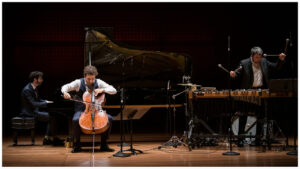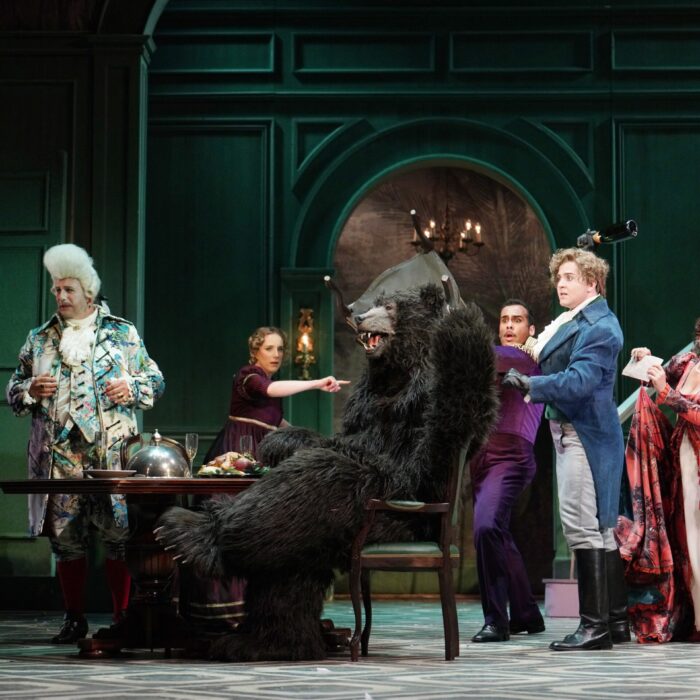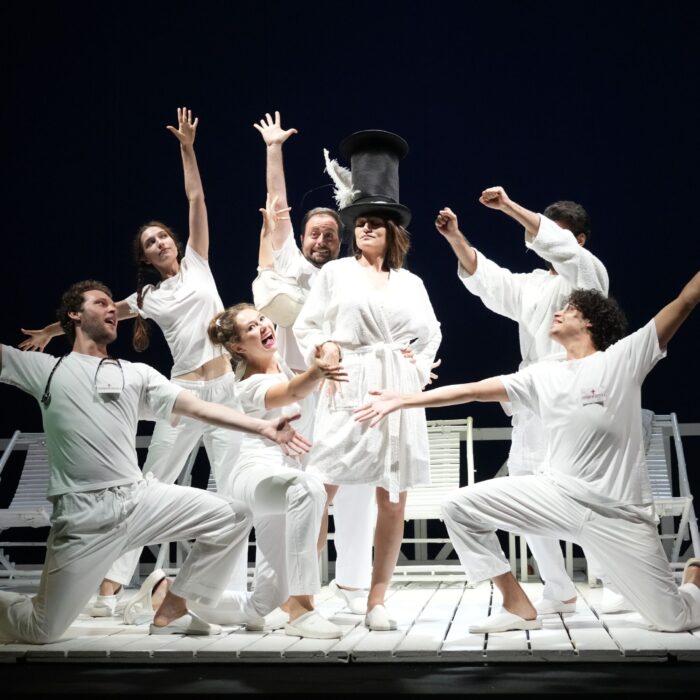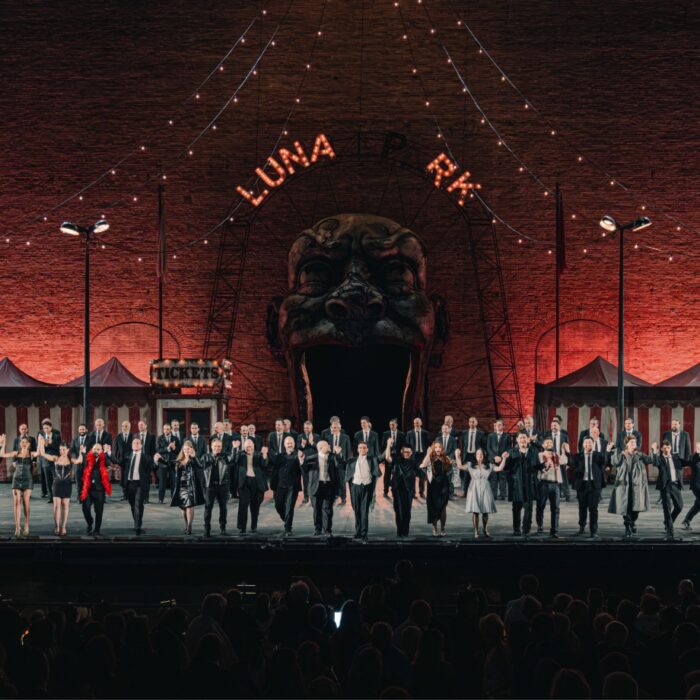
Chamber Music Society of Lincoln Center 2023 Review: Voices of the Americas
By Logan MartellOn March 17, 2023, Chamber Music Society of Lincoln Center presented its “Voices of the Americas” concert at Alice Tully Hall. The program was a rich assortment from the last century which explored and celebrated music through Latin America and beyond, curated by pianist Michael Stephen Brown and cellist Nicholas Canellakis, joined by percussionist Ian David Rosenbaum, pianist Gilles Vonsattel, and soprano Jessica Rivera.
Opening the concert was Aaron Copland’s “El Salon Mexico” for piano and percussion, arranged by Leonard Bernstein, and said to be influenced by the composer’s visit to a dance hall of the same name in Mexico City. From its snappy, opening chords to the relaxed but expressive themes which were established and reprised with breathtaking affection, this piece wonderfully set the stage for what was to ensue over the rest of the night.
Following this was Bernstein’s own “Three Meditations from Mass” for cello, piano, and percussion. The languid cantabile of the cello which led the first meditations was wonderfully accented by tapering chords and delicate chimes, whereas the second was a tidal wave which swelled from a gentle pizzicato to a dark and urgent trio of frantic tones and back down again towards a light, murmuring conclusion capped with one final drum beat. The last meditation powerfully expanded these themes as the three wove a dense texture of expression for their modest number, all building back into the silence it came from.
A Soprano Takes the Stage
The next portion of the program saw soprano Jessica Rivera take to the stage for a refreshing mix of songs, accompanied by Gilles Vonsattel. The first of her set was Carlos Ginastera’s “Cinco canciones populares argentinas,” which made for a quick and flighty romance of both the “snub-nosed girl” as well as the narrator’s homeland, through Rivera’s lighthearted but present patter. The second, Carlos Chavez’ “North Carolina Blues,” saw Rivera engage in a more extended journey through the imagery laden with sensuality, nature, and danger, all revolving around the metaphor of the night air as human skin.
Returning to Ginastera for “Gato,” from the same cycle, the piano’s running introduction was taken up well by Rivera’s whimsical phrases over the circling prowl of the accompaniment.
Riding the energy of the previous number, the opening of Manuel Ponce’s “Estrellita” had a little more strength on the initial fermata as Rivera outlined the starry sky of the text, but subsequent passes of this idea were prepared and delivered with great beauty and gentle admiration. Closing the first half of the program were two famous numbers from Bernstein’s “West Side Story.” The first, “I Feel Pretty,” saw her employ a calm yet bubbly demeanor which unfolded with much charm through her more operatic rendition. The second, “Somewhere,” made for a tender invocation that grew into a soaring prayer which ended the first half on a beautiful and uplifting note.
The Second Half
Opening the second half was Argentine composer Osvaldo Golijov’s “Mariel” for cello and marimba. The piece was introduced by Brown, sharing a quote from the composer: “I wrote this piece in memory of my friend Mariel Stubrin. I attempted to capture that short instant before grief, in which one learns of the sudden death of a friend who was full of life: a single moment frozen forever in one’s memory, and which reverberates through the piece, among the waves and echoes of the Brazilian music that Mariel loved.” The earthy tones which were softly beaten out to create a somber ambience were joined wonderfully by the sorrowful cello phrases as they outlined this pensive, tonal elegy.
The program returned northward, to Brazilian composer Heitor Villa-Lobos’ “A mare encheu” from “Guia practico,” and “O Polichinelo” from “A prole do bebe.” Both played by Vonsattel, the first alternated between a beautifully-articulated lullaby and a jaunt through memory lane, whereas the second was a brief flurry of crossed-hands executed with utter dexterity.
Bringing an end to the concert was George Gershwin’s “Cuban Overture,” for piano, four hands, and percussion. The piece was introduced with the story of its inception, when George Gershwin spent a vacation in Havana and, it is said, a 16-piece band serenaded him outside his hotel at 4 AM, inspiring the rumba which would become this work. The selection represented the completion of the journey through Latin America, and all the influences and meaning drawn therein. What resulted was a marvelous showcase as Brown, Vonsattel, Rosenbaum, and Canellakis laid out the exotic texture with passion and panache, making for an utterly thrilling finale.
Throughout the program was a wonderful sense of not only exploration for some of the contemporary works, but rediscovery for the more famous pieces, with the artists of the Chamber Music Ensemble doing so to splendid effect.



